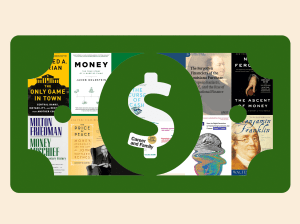
Carmen M. Reinhart, Minos A. Zombanakis Professor of the International Financial System at Harvard Kennedy School, will assume her role as chief economist and vice president at the World Bank on June 15.
Photo by Martha Stewart
‘If it’s not over on the disease … it’s not over on the balance sheet’
Kennedy School’s Carmen Reinhart, just named chief economist at the World Bank, says the COVID-born financial crisis will last until the health crisis is solved
Economist Carmen M. Reinhart, Minos A. Zombanakis Professor of the International Financial System at Harvard Kennedy School (HKS), will take a two-year leave to become chief economist and vice president at the World Bank on June 15, it was announced today.
An acclaimed authority on international finance and financial crises, Reinhart is widely known for her award-winning scholarly history of financial disasters, “This Time is Different: Eight Centuries of Financial Folly” (2008), written with Harvard economist Kenneth Rogoff. The Gazette spoke with Reinhart about her grim forecast for the U.S. economy, the roles debt and China may play in a recovery, and whether the pandemic spells the end of globalization as we know it.
Q&A
Carmen M. Reinhart
GAZETTE: Quite early on, you said the outlook for the U.S. was going to be far more dire and last far longer than many other economists predicted. Why did you feel that way, and how do things look to you now?
REINHART: I haven’t changed my outlook. When you have this kind of economic implosion, the kind of surge in unemployment even before it materialized to the scale that it has, you’re going to have serious effects on balance sheets. Households that lose their jobs are going to have a tough time paying mortgages or their debt or auto loans or credit cards. Medium and small businesses that have to shut down are going to have a tough time staying afloat, not going [into] Chapter 11. And the fact is, unlike the 2008‒2009 crisis, households were in pretty good shape. Banks in the U.S., because of all the efforts to regulate them better, to do more stress testing, were also in pretty good shape. But a shock this sudden, this big, can quickly change that. And so this is why back in early March, when I first started writing about this, I talked about how this is morphing from what started as a health crisis into a financial crisis as well. The title of that piece, which was the first one I wrote on COVID was, “This Time Truly is Different.”
GAZETTE: How do you grade the financial interventions both Congress and the Federal Reserve have taken so far? Are they enough? What more needs to be done?
REINHART: The big plus is that they’ve been swift and front-loaded, which is what you need in an emergency. Are they enough? I think we will see more because I don’t think we’re in for a swift recovery. We will need to see more. The last major, major pandemic in 1918 doesn’t really offer any useful example of what happens to the economy during a pandemic. This was World War I and the year in which deaths in the United States peaked. You had robust 9 percent growth because we were in a wartime economy. This is very different. The response of the lockdown — the domestic scale and the global scale — we’ve never seen before. The economic downturn globally has been extremely synchronized. But the disease is not synchronized, meaning it’s taking off in Brazil, it’s taking off in Russia. And so this could go on as it hits different parts of the globe, which means that, yes, there are going to be efforts to step-wise normalization. But we’re not going to have something akin to full normalization unless we (a) have a vaccine and (b) — and this is a big if — that vaccine is accessible to the global population at large.
GAZETTE: If a second wave of the disease comes back in the fall, which many public health experts predict, what does that portend for the economy?
REINHART: I don’t think it’s over. And if it’s not over on the disease, it’s not over on the social distancing and the business closures, and therefore it’s not over on the balance sheet effects. That makes it a financial crisis until the core health problem gets resolved.

“First and foremost, when you’re in a war, as we were in World War I and World War II, you worry about winning the war and then you worry how you’re going to pay down the debt,” said Carmen Reinhart. “I think that analogue applies here.”
Photo by Natalie Motaner
GAZETTE: Many nations, including the U.S., are taking on historic levels of debt to try to stabilize their economies. Given your well-known views on debt and GDP growth, what does this portend for the U.S. economy?
REINHART: First and foremost, when you’re in a war, as we were in World War I and World War II, you worry about winning the war and then you worry about how you’re going to pay down the debt. I think that analogue applies here. You do what you have to do to win the war, and then you worry about that. In the out-years, we will be doing a lot of worrying. A lot of the work that I’ve done also highlights that the approaches taken after wars have been a lot more heterodox, meaning you rely more on keeping the cost of debt down via very low rates, you have a more lenient view toward inflation, and in the most extreme cases (and I’m not talking about the U.S. in this context, but you can’t rule out something like this happening in Italy, given the north-south tensions there), outright debt restructurings. We saw that in Greece. I know I would have had a tough time believing in 2007 that an advanced economy within the eurozone would find itself restructuring its debt. I’d say that’s right now where the biggest fault lines are.
GAZETTE: Is debt worry a valid reason to pull back on future federal relief payouts?
REINHART: No, no. This is not the time for that. You first win the war.
GAZETTE: The pandemic has revealed a surprising fragility to the global economy and major market weaknesses in the U.S. and around the world involving supply chains, and it has revealed that the efficiency/vulnerability tradeoff that firms made under globalization were much riskier than understood. Is globalization as we know it over?
REINHART: I think COVID-19 is the nail in the coffin of globalization. Maybe that sounds melodramatic. Globalization had its heyday before the [2008‒2009] global financial crisis. If you look at global trade in the decade before the financial crisis, you had the volume of global trade growing about 6 percent a year. In the decade after the global financial crisis, growth became less than half of that, about 2.5 percent. Part of that was Europe. Europe got really hit hard during the 2008‒2009 crisis. And countries like Spain, Ireland, Greece, Portugal that were running big, current-account deficits, which they were financing by being able to borrow freely from the rest of the world, were not able to borrow freely. That’s why you had periphery Europe going into a debt crisis and borrowing from the IMF (International Monetary Fund) and borrowing to cope with that crisis. That was the first nail, I would say, to the very rapid growth in globalization that we’ve seen up to that era. And then comes Brexit, and then comes the U.S.‒China trade war, and now COVID. I think that we’ve seen during this crisis the resurgence of a lot of protectionism in medical supplies, food protectionism, a lot of realization that global supply chains, as you said, are a lot more fragile than we previously thought. And so, I think a legacy of this is going to be a more inward-oriented strategy in many parts of the globe.
From the vantage point of the developing world, de-globalization is not great news. Globalization did not deliver all the goodies it was supposed to have delivered. The issue of inequality became more prevalent. We’ve seen this in the United States, we’ve seen it in Europe, in China proper despite double-digit growth, as an issue. But, the thing that globalization did deliver was greater convergence, somewhat less-skewed inequality between advanced and emerging economies.
“I think COVID-19 is the nail in the coffin of globalization.”
GAZETTE: Most countries are turning inward to stanch the bleeding from this financial crisis. Even the European Union now appears poised to create an EU-wide bailout fund. Is there a need for a global response economically, as well as in other ways?
REINHART: One form of a global response was what the G-20 did with regard to the world’s poorest countries, the [Inclusive Development Index] countries, something that Ken [Rogoff] and I have been advocating: a temporary debt standstill. In the poorest countries, more than 10 percent of revenues go to service external debt. At a moment like this, you should be redirecting resources to the health needs, the food needs, and so on that require immediate resources. That’s very, very important for the global response — how to deal with the poorest countries. The other part that’s very important is to try to avoid falling into some of the traps of the 1930s, the very protectionist, very beggar-thy-neighbor kind of policies. Those are two areas that are extremely important. On debt relief, it is very important that China is on board, because China is the biggest creditor, by far. Debt owed to China is far larger than the debts to the remaining other 19 countries in the G-20, so if China isn’t fully on board, we’re not going to get very substantive debt relief.
GAZETTE: What is China’s attitude toward debt relief?
REINHART: They’ve started to soften, but so far the approach that they have taken is very bilateral, meaning it’s between them and the country in question. So if there are any negotiations between them and Angola or them and Sri Lanka, it’s between them; it’s not done through the Paris Club of official creditors. They don’t want to be a part of the Paris Club because that would also mean more disclosure. So that’s a big issue. Recent statements by President Xi Jinping that China is much more on board on providing debt relief are very welcome. But we will see. We will see.
More like this
GAZETTE: As tensions flare again over responsibility for the pandemic and its spread, how would a U.S. trade war with China affect the global economy?
REINHART: An outright trade war would be yet another major negative. Because don’t forget that for a lot of countries, including the United States, it hasn’t just been COVID-19. It also has been the Russian-Saudi Arabia oil war, which, in the case of the U.S., has impacted the whole energy sector. But in the case of most emerging markets that are commodity producers, it is driving oil prices down. Nigeria, Mexico, Angola, Ecuador have been really hit hard, and it doesn’t end there, because other commodities move in tandem with oil. So the weakness in commodity prices is yet another factor that’s hitting a lot of countries. Not only is the volume of what you export way, way down because of the COVID crisis, but the price of what you export is way, way down. And a trade war would reinforce all those negatives.
GAZETTE: You’re headed to the World Bank, the major lender to developing countries. These are the very places least equipped to overcome the public health and financial effects of this pandemic.
REINHART: Precisely.
GAZETTE: What are some of the immediate challenges the World Bank will confront in the coming months?
REINHART: World Bank projects and concerns span not just the very traditional lending on infrastructure projects, but building roads or building capacity for utilities and electricity and water purifying, all of that. One of the areas that I just wrote about very recently is dealing with a [COVID-19] food crisis. The World Bank has been involved for some time in the East African locust swarms that are threatening real famine risks. It has made loans to 100 countries in this very short period of time to help to deal with this unprecedented situation, in which you have small island countries that rely entirely on tourism and now have no revenue. You have commodity producers, be they in Latin America, Central Asia, or sub-Saharan Africa, that have no revenues also because trade is down, their export prices are down, and they have real needs. The World Bank is also a key data provider and gatherer. That’s a pretty tough task right now. So its activities are very, very far-reaching. And one of the important, more immediate challenges right now is figuring out how to get that relief to the poorest countries.
This interview has been edited for clarity and length.







